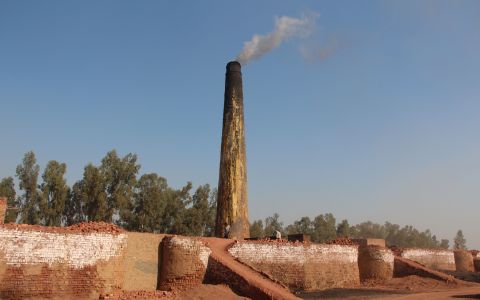Health warning: discarding worn-out Qur’ans can cost you your life
by - 12th December 2014

THE MISUNDERSTANDING of how to dispose of a worn-out Qur’an has shed light once again upon how Pakistan’s blasphemy laws for Muslims are being used to persecute minority groups.
It has emerged that only four days after the death of Shehzad Masih and his pregnant wife Shama Bibi, 24 Christian families narrowly escaped death from a mob that mistakenly believed they were responsible for a discarded Qur’an found in a water channel.
The Christian families work in Chak 59, a village 60km from Lahore, which is where the burnt remains of Masih and Bibi were found after they were subject to a brutal attack by an Islamic mob over suspicions of desecrating the Qur’an on 4 November.
Following their death the Pakistani Prime Minister, Nawaz Sharif said he was determined to bring the perpetrators to justice and appointed Senator Kamran Michael to be the focal person in the case. Police said the day after the killings that the imam of a local mosque ‘incited murder’.
Discrimination
Condemnation from top religious clerics gave some hope to human rights defenders for positive change, but there’s still rising levels of discrimination against Christians.
London-based Minority Rights Group International in its report Searching for Security: The Rising Marginalization of Religious Communities in Pakistan published on 8 December confirms this trend: ‘The environment in which minorities find themselves is characterised by hate speech, frequent invocation of blasphemy laws and increasingly violent attacks on places of worship’.

It was in this hostile environment that only four days after the Christian couple was beaten and burned to death, the 24 bonded-labourer Christian families, also working at a brick kiln, narrowly escaped a mob attack thanks to the intervention of a police contingent that happened to be passing through the village.
A copy of the Qur’an was recovered from a water channel near a bus stop in Raiwind on 9 November. The Qur’an was handed to cleric Muhammad Hussein who runs a mosque in the nearby village. After this, an announcement was made from the mosque that desecration of the Qur’an had taken place.
Rumour
In the absence of any obvious suspect, a rumour spread that nearby Christians were most likely to have done this. As a mob began pouring in after the announcement, some extremist Muslims pressed the Christian workers to declare their innocence on oath, saying ‘the Kasur episode could be repeated’.
The Christians immediately informed the brick kiln owner, Hajji Ikram, about this demand and the rising level of anger among the protestors. Hajji said it was impractical to bring all his Christian workers out and make them take an oath: ‘I discussed it with my son Muhammad Tayyab. What if the enraged mob were still unsatisfied, and the Kasur incident were repeated at our kiln?
‘Fearing any untoward situation, I told the Christians to inform the police immediately about the threat that neighbouring Muslims have posed to them,’ Ikram added.
It did not take long for the police to arrive and take control of the mob. Some of the Christians in the village said that about nine vehicles loaded with more than 100 policemen immediately arrived to protect the Christians, and remained deployed there for a couple of days.
Ejaz Shafi Dogar, the police superintendant, said that on the day most of the police had been deployed at the annual gathering of the Tablighi Jamaat (an Islamic religious movement that aims at spiritual revival), which is only a few kilometres away from the village. The program had ended and the police were near the village when the emergency call came through.
‘The police took charge of the situation and resolved the matter peacefully', Dogar said. ‘This all became possible because of the ready availability of the police; otherwise, things could have got worse.
‘The method prescribed in Islam for discarding a worn-out copy of the Qur’an is burying it, but many illiterate Muslims, though wrongly, believe that a worn-out Qur’an should be drowned in clean running water.
‘It is in this context that, out of reverence, someone threw a copy of the Qur’an into a canal that led to a water channel that ends near the brick kiln where Christian families worked.
‘The condition of the Qur’an had deteriorated so much that it was easy to convince the Muslim mob that it had drifted all the way from the canal into the channel,’ he added.
Dogar says there is no more danger for the Christian families working on the kiln.
About four thousand blasphemy cases have been reported since 1986, compared with less than ten between 1927 and 1986. At least 54 people have been murdered, including 17 Christians, who make up only 1.6 per cent of the population.
A leading advocate in the Pakistan Supreme Court, Ch. Naeem Shakir, told a recent meeting at London's School of Oriental and African Studies that the blasphemy requirements in Pakistan's Penal Code were meant to constrain lapsing Muslims, not minorities, whose very religion was blasphemous according to Islam, and could not be expected to abide by Islamic requirements. But the way the Code was being used by the courts created a climate of terror in the country at large that could be exploited.
